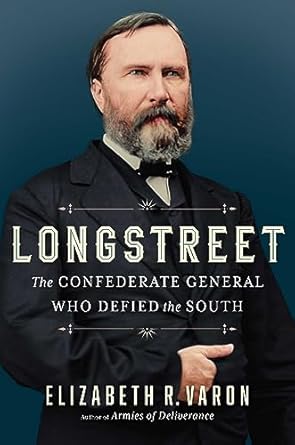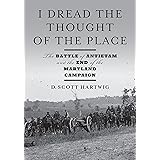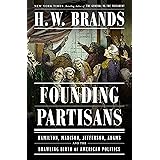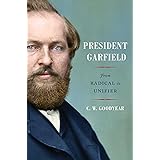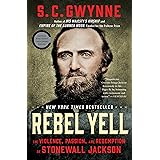
Enjoy fast, free delivery, exclusive deals, and award-winning movies & TV shows with Prime
Try Prime
and start saving today with fast, free delivery
Amazon Prime includes:
Fast, FREE Delivery is available to Prime members. To join, select "Try Amazon Prime and start saving today with Fast, FREE Delivery" below the Add to Cart button.
Amazon Prime members enjoy:- Cardmembers earn 5% Back at Amazon.com with a Prime Credit Card.
- Unlimited Free Two-Day Delivery
- Streaming of thousands of movies and TV shows with limited ads on Prime Video.
- A Kindle book to borrow for free each month - with no due dates
- Listen to over 2 million songs and hundreds of playlists
- Unlimited photo storage with anywhere access
Important: Your credit card will NOT be charged when you start your free trial or if you cancel during the trial period. If you're happy with Amazon Prime, do nothing. At the end of the free trial, your membership will automatically upgrade to a monthly membership.

Download the free Kindle app and start reading Kindle books instantly on your smartphone, tablet, or computer - no Kindle device required.
Read instantly on your browser with Kindle for Web.
Using your mobile phone camera - scan the code below and download the Kindle app.

OK
 Audible sample Sample
Audible sample Sample 


Longstreet: The Confederate General Who Defied the South Hardcover – November 21, 2023

Explore your book, then jump right back to where you left off with Page Flip.
View high quality images that let you zoom in to take a closer look.
Enjoy features only possible in digital – start reading right away, carry your library with you, adjust the font, create shareable notes and highlights, and more.
Discover additional details about the events, people, and places in your book, with Wikipedia integration.
Purchase options and add-ons
American Battlefield Trust Prize for History Finalist
A “compelling portrait” (Jon Meacham, Pulitzer Prize–winning author) of the controversial Confederate general who later embraced Reconstruction and became an outcast in the South.
It was the most remarkable political about-face in American history. During the Civil War, General James Longstreet fought tenaciously for the Confederacy. He was alongside Lee at Gettysburg (and counseled him not to order the ill-fated attacks on entrenched Union forces there). He won a major Confederate victory at Chickamauga and was seriously wounded during a later battle.
After the war, Longstreet moved to New Orleans, where he dramatically changed course. He supported Black voting and joined the newly elected, integrated postwar government in Louisiana. When white supremacists took up arms to oust that government, Longstreet, leading the interracial state militia, did battle against former Confederates. His defiance ignited a firestorm of controversy, as white Southerners branded him a race traitor and blamed him retroactively for the South’s defeat in the Civil War.
Although he was one of the highest-ranking Confederate generals, Longstreet has never been commemorated with statues or other memorials in the South because of his postwar actions in rejecting the Lost Cause mythology and urging racial reconciliation. He is being discovered in the new age of racial reckoning as “one of the most enduringly relevant voices in American history” (The Wall Street Journal). This is the first authoritative biography in decades and the first that “brilliantly creates the wider context for Longstreet’s career” (The New York Times).
- Print length480 pages
- LanguageEnglish
- PublisherSimon & Schuster
- Publication dateNovember 21, 2023
- Dimensions6 x 2 x 9 inches
- ISBN-101982148276
- ISBN-13978-1982148270
Books with Buzz
Discover the latest buzz-worthy books, from mysteries and romance to humor and nonfiction. Explore more
Frequently bought together

Similar items that may deliver to you quickly
Editorial Reviews
Review
"Varon brilliantly creates the wider context for Longstreet’s career. . . . [and] the complexity of a brave man whose very 'legacy would prove to be a battlefield of its own.'" -- Brenda Wineapple ― The New York Times
"Compelling. . . .[Varon's] knowledge of the historical context is matched by her balanced appraisal of Longstreet’s attitudes, personal and political.” -- Eric Foner ― The Atlantic
"For readers interested in the tragedy of America's Civil War, the horrors of Reconstruction and their implications for our own divided time, Longstreet is an essential book." -- Mary Ann Gwinn ― Minneapolis Star-Tribune
“It’s hard to see Elizabeth Varon’s new biography of James Longstreet becoming a runaway bestseller, and that’s a shame, because her study of the Confederate general—one of Robert E. Lee’s closest confidants, yet an outcast in the post–Civil War South for his embrace of Black emancipation and civil rights—is insightful, well-executed, and sorely needed.” -- Richard Kreitner ― Slate
"Tells Longstreet’s story with authority and insight. . . . Readers interested in the Civil War and the horrors of Reconstruction should not miss this book." ― Kirkus Reviews
“At a time when it seems an open question whether human beings have the capacity to learn and to change in politics, the great historian Elizabeth Varon has given us a compelling portrait of a man who did just that: James Longstreet. A Confederate general who became an advocate for justice in the painful aftermath of the Civil War, Longstreet has much to teach us in our own hour of polarization.” -- Jon Meacham, author of And There Was Light: Abraham Lincoln and the American Struggle
"James Longstreet's evolution from an ardent secessionist and prominent Confederate general to a postwar Republican and supporter of black civil rights who repudiated Lost Cause mythologies has long puzzled contemporaries and historians. Elizabeth Varon brilliantly solves this puzzle and links it to the persistent efforts to scapegoat Longstreet for Confederate defeat at Gettysburg." -- James M. McPherson, author of Battle Cry of Freedom: The Civil War Era
"James Longstreet is best known as a talented Confederate military figure and a Lost Cause pariah. Elizabeth Varon provides the first in-depth assessment of his substantial postwar career as a politician, diplomat, and reconciliationist. Her superb book reminds modern readers of Longstreet's stature, while also illuminating the complexity and volatility of the nation's racial and sectional politics." -- Gary W. Gallagher, author of The Enduring Civil War: Reflections on the Great American Crisis
About the Author
Excerpt. © Reprinted by permission. All rights reserved.
It was a quintessentially American scene. Although the event was slated to begin at four o’clock in the afternoon, the city square began to fill up hours earlier, as thousands of spectators gathered in eager anticipation of a venerable civic ritual: a militia parade and flag presentation ceremony. Such occasions, in which volunteer citizen soldiers displayed their martial prowess and their patriotic devotion to the state, generally followed time-honored scripts. And this parade was, in key respects, no different from countless others that had come before. The arrival of the militia was heralded by the martial airs of a regimental band. Having made their way to the square, the troops drew up in line of battle and opened ranks, to be inspected by their officers and demonstrate their skill in marching in close order. The regiment then wheeled into column by companies and passed a reviewing stand, where dignitaries and distinguished guests—military and civil—looked on with approval. “One might be easily excused for mistaking them for regulars, so admirable was their marching,” crowed the local newspaper, comparing the militiamen favorably to professional soldiers.1
The militia formed a line of battle again, and its commissioned officers marched forward to receive a stand of colors—featuring a brightly colored flag bearing the coat of arms of the state—from the general who commanded the militia force. The general made a short speech in which he expressed his faith that if the troops were ever called into battle, they would do the state proud. The regiment’s colonel, accepting the stand of colors on behalf of his fellow officers, then gave a speech of his own, expressing his sincere thanks for “the honor you have done us and the confidence you have reposed in us.”2
Such events had a timeless quality, as celebrations of the vital role nonprofessional soldiers have played, in times of peace and war, as auxiliaries to the standing, full-time, professional US military.
But this particular ceremony also marked a unique moment in American history—a moment of fleeting possibility. The year was 1870, the zenith of Reconstruction in the post–Civil War South. The place was New Orleans, a key proving ground for testing whether Reconstruction would succeed. The soldiers, the 2nd Regiment of the Louisiana State Militia, were African American. They pledged themselves to defend not only the flag of Louisiana but also the flag of the Union.
And positioned conspicuously in the reviewing stand, radiating his approval, was a man who had waged four years of bloody war against that very Union: the famed Confederate general James Longstreet.
II
Longstreet did not make a speech at this October review, but his presence spoke volumes. Like the militia’s commander, a former Union colonel named Hugh J. Campbell, Longstreet was there as a representative of Louisiana’s governor, Henry Warmoth, and of Warmoth’s governing coalition. Warmoth had appointed Longstreet adjutant general (chief of staff) of the state force, in recognition of his military experience as a career soldier and, more important, of the bold and unlikely political position that Longstreet took on Reconstruction: namely, to support the US Congress’s ambitious, revolutionary program for remaking the American South. The centerpiece of its plan was the enfranchisement of Black Southern men as voters and their inclusion in the body politic as citizens. In aligning himself with this program, Longstreet joined ranks with the Republican Party—the party of the North, of Lincoln, of emancipation, of Union victory, of everything Confederates had loathed and feared. The Republicans rewarded him with a major federal patronage position as customs surveyor in New Orleans (bestowed in 1869 by President Ulysses S. Grant) and with various leadership positions within the Louisiana party apparatus.3
Longstreet threw himself into his role as an agent of Reconstruction, in his capacity as a civil servant and warrior. As Hugh J. Campbell noted in his remarks during the October 1870 flag presentation ceremony, Longstreet showed “every favor in his power” to the Black regiments in the Louisiana State Militia, seeing to it that they were properly armed, equipped, and trained; promoting the careers of the LSM’s Black officers; and according them, from his position as one of the most “illustrious soldiers of America” (so Campbell put it), their rightful legitimacy and respect. Indeed, during the ceremony, Longstreet singled out one of the companies of the 2nd Regiment, led by United States Colored Troops veteran Captain R. R. Ray, for its drilling, praising it “in the most complimentary manner,” according to newspaper coverage of the event. Such a show of support was meant to nerve the men to do battle, as the regiment’s colonel, James B. Lewis, intoned in his comments, with their ultimate enemy, that “great monster, the most formidable of all”: the “caste prejudice” that had so long subordinated Southern Blacks.4
How did Longstreet, a man who had gone to war in 1861 to destroy the Union and perpetuate slavery, find his way onto that reviewing stand, among his former enemies? This biography will answer that question, and in so doing reintroduce Americans to one of the Civil War era’s best-known—but least understood—figures.
The basic outlines of Longstreet’s story have long been familiar to scholars and the interested general public. During the Civil War, he commanded the Army of Northern Virginia’s fabled First Corps, and won laurels in Confederate victories at Second Manassas, Fredericksburg, and Chickamauga, among other battles, earning a reputation as Robert E. Lee’s hardy and dependable “war-horse.” Longstreet’s postwar embrace of Radical Reconstruction infuriated his fellow white ex-Confederates, who promptly cast him out of the pantheon of Confederate heroes—and then proceeded, in a decades-long campaign, to blame Longstreet retroactively for their defeat in the Battle of Gettysburg, as well as for the loss of the war itself. Longstreet’s efforts to defend himself were muddled and contradictory, and he remained a social pariah, remembered in the South as Lee’s “tarnished lieutenant.”5
The vast majority of popular writing and academic scholarship on Longstreet has revolved around the question of whether, militarily speaking, he deserved this fate: his performance as a commander in the Civil War, especially at Gettysburg, has been litigated over and over in painstaking detail, with various verdicts (mostly negative) offered on his generalship. But Longstreet’s remarkable postwar political conversion—the very event that sparked the endless debates over his military leadership—has never been the subject of an extended, thorough account. Longstreet’s 1867 decision to support Reconstruction launched him on a lifelong career as a Republican political operative and national celebrity whose iconoclastic positions on race relations, sectional reunion, military history, foreign affairs, and even marriage kept him consistently in the public eye. A prolific writer and speaker and interviewee who produced a vast oeuvre of political commentary, Longstreet ruminated at length on the issues of loyalty and treason, victory and defeat, progress and reaction—and his distinct voice can help us better understand both the transformative changes and the entrenched inequities of the postwar era. Longstreet was not, by the standards of Radical Republicans and abolitionists such as Thaddeus Stevens and Frederick Douglass, a true racial egalitarian. But even his circumscribed challenge to the racial caste system—his insistence that Blacks could exercise, through the Republican Party, a measure of political influence and leadership in the Southern polity—was a clear and present threat to Lost Cause orthodoxies. Defenders of the Lost Cause, such as Confederate general Jubal Early, insisted on the righteousness of slavery, secession, the Confederacy, and white supremacy. Longstreet rejected the conservative South’s demand for ideological purity, and that was enough to cast him forever as an apostate in the eyes of those who rejected change. Longstreet was “le Judas Confedéré,” as the reactionary francophone New Orleans paper Le Carillon charged, to go along with the labels of “Benedict Arnold,” “Lucifer,” and other such favorites of the unreconstructed press.6
III
Longstreet’s political journey from ardent Confederate to ardent Republican was an exceedingly unlikely one. As this biography will show, his remarkable life played out in three distinct acts, each with its own dramatic arc. The first act saw Longstreet, bred for battle and steeped in proslavery ideology, seize the mantle of rebel when the South seceded and fight tenaciously for Southern independence until the bitter end. Longstreet was a true believer in the Confederacy’s racial politics. As a military commander, he tried to preempt and to punish the many forms of Black resistance to the Confederacy, such as the flight of slaves and their offering their services as spies, scouts, and soldiers to the Union army. And he worked to forestall and undermine emancipation, through acts such as seizing free Blacks during the Gettysburg campaign and sending them South as slaves.
While his belief in the Confederate cause did not waver during the four long years of war, Longstreet’s confidence in it did. His growing bitterness about the human costs of the conflict and the failings in Confederate leadership primed him to contemplate the prospect of defeat and to formulate a critique of the fatal flaws that beset Southern society—especially the flaw of hubris. It was not the battle at Gettysburg that defined Longstreet’s Civil War but rather the surrender at Appomattox. There, on April 9, 1865, Longstreet’s West Point classmate and dear old friend, U. S. Grant, extended the hand of clemency to the surrendering Confederates, to effect their submission to a new order. Longstreet took that offer to heart.
In his second act, during the turbulent era of Reconstruction, Longstreet affirmed the finality and necessity of both Union victory and of emancipation. Motivated by a complex blend of personal and political factors—including his respect for Grant and his exposure to the unique racial politics of New Orleans—Longstreet announced his support for Reconstruction to the public in the spring of 1867. “There can be no discredit to a conquered people for accepting the conditions offered by their conquerors. Nor is there any occasion for a feeling of humiliation. We have made an honest, and I hope I may say, a creditable fight, but we have lost. Let us come forward, then, and accept the ends involved in the struggle.” This simple sentiment drew the wrath of ex-Confederates, who reviled Longstreet as a race traitor—even as Northern and Southern Unionists, Longstreet’s wartime foes, rallied to his defense.7
Stung by Confederate condemnation of his stance, Longstreet doubled down and became deeply immersed in Republican Party politics. He chose, in Louisiana’s bitter gubernatorial election cycle of 1872, to back the faction led by Union veterans William P. Kellogg (a white Northerner) and Pinckney Benton Stewart Pinchback (a Black Southerner). As conservative whites wielded propaganda, fraud, intimidation, and violence to suppress Black votes and undermine the Republican coalition, Longstreet defended Black voting as a key to rebuilding the South. In what became known as the battle of Canal Street, on September 14, 1874, Longstreet, leading the interracial New Orleans Metropolitan Police and the state militia, fought to defend the Republican state government against a violent takeover by the White League, the Democratic Party’s white supremacist paramilitary arm, full of Confederate veterans. It took federal troops, sent by President Grant, to pacify the city.8
The traumatic events of 1874 drew the curtain on Longstreet’s second act, in which he had battled alongside Radical Republican allies against racial segregation and oppression. Making a strategic retreat from the turmoil in Louisiana, Longstreet resettled his family in Gainesville, Georgia. During his third act, lasting thirty years until his passing in 1904, he remained active in government, holding patronage posts as an internal revenue collector, postmaster, ambassador to the Ottoman Empire, US marshal for Georgia, and US railroad commissioner. He continued to support Black voting and officeholding, working closely, sometimes at cross-purposes, with Georgia’s leading Black activists and politicians. But Longstreet also tried in these years to claw back some of his lost popularity among white Southerners, especially Confederate veterans. He emphasized the need for white Southerners to firmly control the Republican coalition, and he fashioned himself as a herald of sectional reconciliation who was equally proud of his Confederate record and his Republican affiliation.
Limbering up his pen, Longstreet did literary battle with a clique of Confederate veterans, led by Jubal Early and William Nelson Pendleton, who worked relentlessly to scapegoat him for the South’s defeat and to immortalize Robert E. Lee as a faultless saint. Longstreet labored doggedly, and with considerable skill, to set the record straight on his military performance during the war. As he put it in 1876, “I should have been willing to have any one, who wished to use it, appropriate any or all of my part in the war if it had been done without arraigning me before the world as the person, and the only one, responsible for the loss of the cause. Under the severest provocations I have remained silent, until the importunities have forced me to speak.”9 Speak Longstreet did, in torrents of prose, including published interviews, letters, speeches, essays, articles, and a 690-page memoir, From Manassas to Appomattox: Memoirs of the Civil War in America (1896), all of which were eagerly consumed by a rapt public.
Longstreet’s tireless campaign at self-reinvention—one that received a jolt of energy when he married a maverick young journalist, Helen Dortch, in 1897—paid off. His popularity and visibility surged in the last years of his life, as he managed to build reservoirs of goodwill among divergent groups in American society, each of which saw in him, as he did in them, some political value. Those groups included Southern Blacks competing for Republican patronage in the nadir years of Jim Crow; Northern Republicans eager to devise a winning “Southern strategy” for capturing votes; “New South” boosters, like the editors of the influential Atlanta Constitution, who hoped to fuse economic modernization and social conservatism; and Civil War veterans, blue and gray alike, swept up in the burgeoning cult of sectional reunion. But Longstreet’s skill at cultivating these alliances only further pointed up his iconoclasm. His stubborn efforts to reconcile his Confederate and Republican identities meant that he never secured the full trust of either conservatives or progressives. His impassioned critiques of Southern intolerance boomeranged back on him, as whites in the region simply would not tolerate his challenges to the cult of Lee worship or the “Solid South” political dominance of Democrats.
Debates over the current landscape of Civil War memorialization invariably invoke the fate of Longstreet, who, unlike Lee and his ilk, never became a “marble man,” immortalized among the Confederate statues erected in town squares across the South. Longstreet could not be used as a symbol of white supremacy and the Lost Cause because, in the eyes of Confederates, he had repudiated both.10 But Longstreet’s legacy is so complex that he does not fit easily the mold of either hero or villain. His long life is a revealing window into nearly a century of Southern history. He embodied antebellum Southern society’s commitment to slavery and white supremacy; the wartime elusiveness, for Confederates, of command harmony and social cohesion; the suppression of dissent in the postwar South (with Longstreet taking up the mantle of an embattled dissenter); and American culture’s unfolding contests over the Civil War’s legacies. In the face of ex-Confederates’ intransigence, his greatest provocation was his very willingness to change. He is one of nineteenth-century America’s most significant public figures precisely because he confounds our labels and forces us to confront the haunting complexity of Southern history—and the elusiveness of reconciliation among Southerners over the meaning of the Civil War.
Product details
- Publisher : Simon & Schuster (November 21, 2023)
- Language : English
- Hardcover : 480 pages
- ISBN-10 : 1982148276
- ISBN-13 : 978-1982148270
- Item Weight : 1.36 pounds
- Dimensions : 6 x 2 x 9 inches
- Best Sellers Rank: #23,717 in Books (See Top 100 in Books)
- Customer Reviews:
About the author

ELIZABETH R. VARON is Langbourne M. Williams Professor of American History at the University of Virginia. Varon grew up in northern Virginia. She received her MA from Swarthmore College and PhD from Yale, and has held teaching positions at Wellesley College and Temple University. A specialist in the Civil War era and 19th-century South, Varon is the author of We Mean to be Counted: White Women and Politics in Antebellum Virginia (1998); Southern Lady, Yankee Spy: The True Story of Elizabeth Van Lew, A Union Agent in the Heart of the Confederacy (2003), which won the Lillian Smith Prize of the Southern Regional Council, the People’s Choice Award of the Library of Virginia, and the Richard Slatten Biography Prize of the Virginia Historical Society; and Disunion!: The Coming of the American Civil War, 1789-1859 (2008) and Appomattox: Victory, Defeat and Freedom at the End of the Civil War (2013). Appomattox won the 2014 Library of Virginia Literary Award for Nonfiction, and the 2014 Dan and Marilyn Laney Prize for Civil War History (Austin Civil War Roundtable), was finalist for the 2014 Jefferson Davis Award (Museum of the Confederacy), and was named one of Civil War Monitor’s Best Books of 2014. Varon’s public presentations include book talks at the Lincoln Bicentennial in Springfield; and at Gettysburg’s Civil War Institute; and on C-Span’s Book TV. She is also a featured speaker in the Organization of American Historians’ Distinguished Lectureship program.
Customer reviews
Customer Reviews, including Product Star Ratings help customers to learn more about the product and decide whether it is the right product for them.
To calculate the overall star rating and percentage breakdown by star, we don’t use a simple average. Instead, our system considers things like how recent a review is and if the reviewer bought the item on Amazon. It also analyzed reviews to verify trustworthiness.
Learn more how customers reviews work on Amazon-
Top reviews
Top reviews from the United States
There was a problem filtering reviews right now. Please try again later.
Longstreet went to West Point where he met and befriended Ulysses Grant and others who served in leadership positions on both sides of the Civil War. Longstreet finished toward the bottom of his class, but he did internalize the strategies and tactics of 19th century warfare. When the Civil War began, he commanded the Army of Northern Virginia, First Corps. The author provides a sweeping review of the major battles in which Longstreet participated. He was an inspiring leader and a fierce fighter who was victorious in battles at Manassas, Friedricksburg and Chickamauga. During the battle of Gettysburg, Longstreet's actions cast a shadow on his military career which haunted him for the rest of his life and beyond. He had proposed a defensive strategy while General Robert E. Lee insisted on an offensive strategy. The Confederate defeat at Gettysburg was a major turning point in the war. Longstreet claimed Lee told him he, Lee, had made a mistake in his strategy, but throughout the rest of his life, Longstreet was blamed by most Southerners for the Confederate defeat. This embittered him. Though most Confederates mourned and cherished the "Lost Cause" and deified the memory of Robert E. Lee, Longstreet rejected both. He decided to reinvent himself.
Longstreet ceased his affiliation with the Southern Democrats and became a Republican. He converted from Protestantism to Catholicism. He rejected segregation and embraced Reconstruction. In New Orleans, he integrated the State militia. These activities enraged many of his former white colleagues. He was blamed for the interracial battle in New Orleans known as the Canal Chaos of 1874 in which the Black militia clashed with the racist White League. There were casualties on both sides.
Longstreet sought political positions by seeking the patronage of other politicians, but he was inept as a politician. He supported Blacks in the military, but was not prepared to enfranchise them or to denounce Jim Crow policies. He wrote multiple articles which appeared in newspapers throughout the USA, trying to explain himself whenever he morphed into another version of James Longstreet. His letters created more confusion and criticism about his past career and current positions. His second wife spent most of her life trying to rehabilitate his image, but as times changed, she took a different approach to achieve his objectives for Blacks in the South. It was not until 1998 that an equestrian statue of General Longstreet was installed at Gettysburg. It has a small plaque and is not on a pedestal.
"A finely grained fictional account of the Gettysburg campaign, the book conjured the strained relationship of Longstreet and Lee, casting Longstreet as a prescient pragmatist oriented toward the future, who symbolized modern warfare, and Lee as the prideful romantic, backward-looking and resigned to fate."
Why had I never heard of Longstreet? Because the USA doesn't want to remember him.
At the end of the Civil War, Longstreet, unlike the huge majority of Confederate officers, accepted defeat. Longstreet was a great friend of Union general Ulysses S Grant, and he was inspired by Grant's generosity in victory to behave in such a way as to deserve it. (There is much more to say than this, and Varon of course says it, but that's a good place to start.) Most Confederate officers did not. They believed that they had been defeated by "might, not right" -- that they fought in a good cause (white supremacy, not to put too fine a point on it), that they deserved to win, and in a just world would have won. This ideology is called the Lost Cause, and it is far from dead in the USA even today, 22-Nov-2023.
Longstreet became a staunch Republican. (The Republicans, remember, were the party of Lincoln, those who fought for the abolition of slavery.) He went into politics in New Orleans, where he committed such unforgivable sins as building a mixed-race police force. For these reasons he was reviled by almost the entire Southern USA as a traitor. Lost Cause Confederate military officers sought to retroactively blame him for the defeat at Gettysburg, and thus the loss of the Civil War.
When in the late 19th and early twentieth century, Southerners sought to revive the Lost Cause ideology, they put up statues of Confederate generals all over the South. (I lived in Richmond, Virginia for five years, and I saw them.) But Longstreet, as valiant a soldier as any in the Confederate ranks, didn't get any statues.
That's why I had never heard of Longstreet.
Varon's new biography seeks to be fair to Longstreet. It is by no means a whitewash -- like all Confederate officers, he was a traitor. And even after the war, his attitudes were hardly ones we would celebrate today. But he fought for the rights of black folks to be safe in their homes, to vote, to seek and hold office, and to be welcome at public accommodations. Varon sums him up thus
"We like to bestow praise on historical figures who had the courage of their convictions. Longstreet’s story is a reminder that the arc of history is sometimes bent by those who had the courage to change their convictions. He accepted defeat with a measure of grace and tried to learn, and then to teach, the past’s lessons. And for that, he commands our attention as one of the most enduringly relevant voices in American history."
This is an excellent, even-handed biography of a man who deserves attention and justice.
Well written. Could hardly put the book down. An excellent addition to one's understanding of the chronic gridlock of the factions in the US. (Yes, the US is STILL fighting the Civil War.)
My thoughts: It appears that we people pass our attitudes down to our kids in a very strong way through family and local cultures, and epigenetics.
The entrenchment of and conflict over world views can seem hopeless, but we know from history that it is not. Whether south-north, or Israeli-Palestine, or Hatfield-McCoy, there is a way out. It can just be hard to find it or get there. It makes me want to read up on the Catholic-Protestant conflict that went on for so long in Ireland, to find out what finally stopped it.


